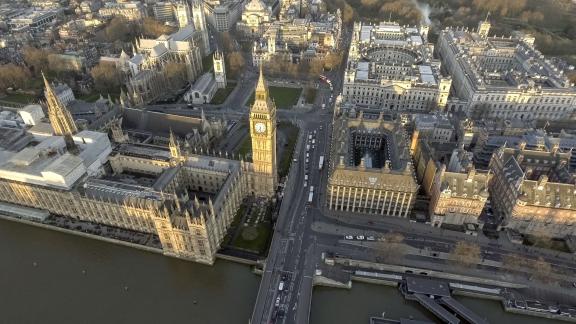Winter pressures could throw NHS performance improvements off course

- The total waiting list for procedures and appointments fell from 7.71 million in October to 7.61 million in November;
- NHS staff delivered more than 1.63 million treatments in November, the highest on record and around 150,000 more than the same month pre- pandemic;
- Some 69.4% of patients were admitted, transferred or discharged from A&E departments within four hours in December, worse than November but better than December 2022;
- The average ambulance response time to category one calls was 8 minutes 44 seconds in December, two minutes better than December 2022.
- Similarly, the average category two response time was 45 minutes 57 seconds, 47 minutes faster than last year;
- The proportion of ambulance handover delays of more than 30 minutes was 31% last week, up from 29% the previous week, but below the 36% reported during the same week last year;
- There was an average of 1,548 patients in hospital with flu each day last week, up 18% from 1,312 the previous week;
- An average of 4,244 beds were occupied by Covid-19 patients per day last week, compared to 3,927 the previous week;
- An average of 50,402 NHS staff were off sick last week, up 5% from 47,779 the previous week; and
- Some 12,459 beds each day were filled with patients no longer meeting the criteria to reside in hospital on average last week, up 9% from 11,478 the previous week. However, at the same time last year this was over 14,000.
Responding to the latest data on NHS performance and the winter sitrep Dr Layla McCay, director of policy at the NHS Confederation, said:
“The latest data shows some very welcome improvements in NHS performance which is testament to the intense preparations and earlier planning by the NHS ahead of what has now proven to be a challenging start to the winter period. But these early signs of recovery are not necessary the light at the end of the tunnel and a crisis could throw all this progress off course.
“The second consecutive fall in the waiting lists and increase in productivity shows that all the planning and hard work can pay off.
“But with figures showing that more than 200,000 appointments and operations were cancelled during the recent wave of junior doctors strikes in December and January the health service still has a mountain to climb and is under no illusions of how much work needs to be done. While staff deserve praise for the monumental effort they have put in health leaders know it is no time to rest on their laurels. Thousands of patients need to have their cancelled appointments and treatments rebooked and we have no way of knowing how many people who stayed away during the strikes may now come forward for care.
“The improvement in ambulance response times and handover delays is also welcome, but the fact that services are still failing to meet key national targets shows that there is still a lot of work to be done. A&Es are still under immense pressure with too many patients waiting more than 12 hours, even though there have been improvements since last year.
“What keeps NHS leaders awake at night is how fragile these improvements are, with services still under immense pressure in the midst of winter. Flu and Covid levels are rising while more staff are off sick. A spike in winter viruses or further strikes could jeopardise all these improvements.
“It is still too early to say if the NHS has turned a corner and a lot more work has to be done to reach the targets that the health service is aiming for. But it appears that some things are heading in the right direction."



